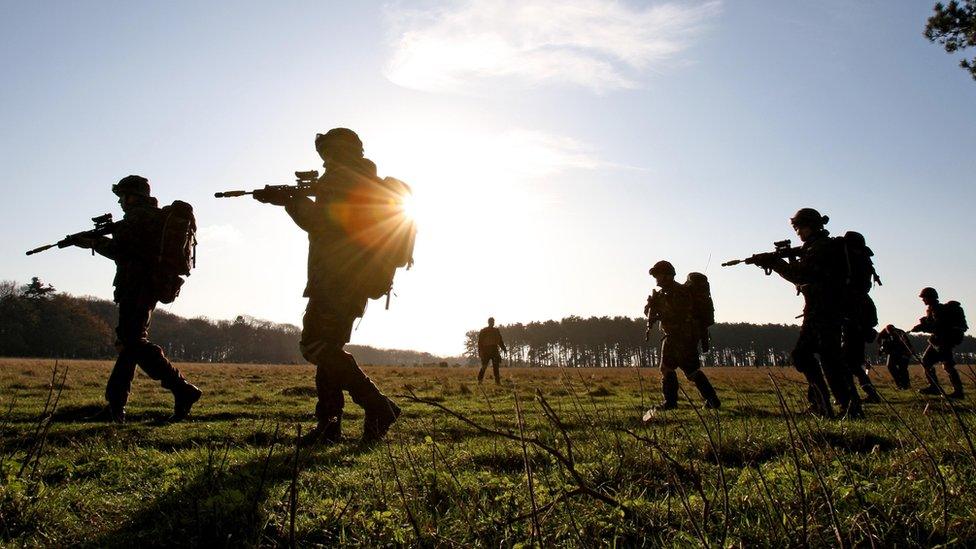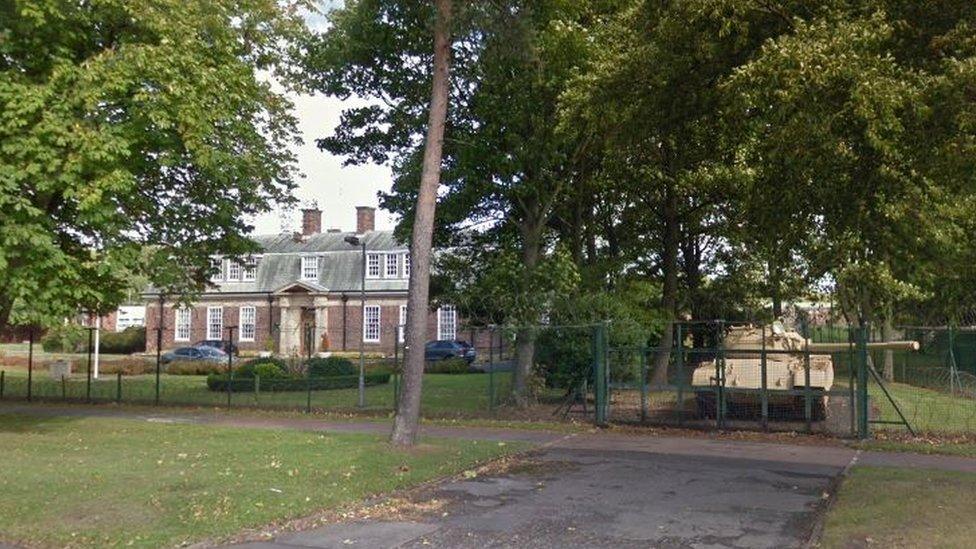Lockdown led to 'spike in army training near misses'
- Published

People have been told to keep themselves, their children and their pets safe by avoiding training areas
Military families are putting their lives at risk after hundreds of near misses during training exercises at the UK's largest Army garrison.
Since the start of the coronavirus crisis, there has been a spike in people walking and exercising on the training area in Catterick.
Off-duty soldiers and their relatives were among those at risk.
The Ministry of Defence (MoD) has started a campaign warning of the dangers of entering training areas.
Dog walkers and cyclists have been seen risking their lives by accessing these sites, according to the Defence Infrastructure Organisation, which has responsibility for managing the sites.
Brig Jonathan Bartholomew said: "We want to keep you, your children, family and friends safe.
"Just because you can't see or hear a live exercise, doesn't mean that it isn't taking place."

A series of posters have been made as part of "The Training Area Isn't" campaign
Since March, there have been more than 300 recorded near misses at Catterick, North Yorkshire, home to the largest garrison in the UK with more than 11,000 serving soldiers and 15 different regiments.
A near miss is recorded when someone comes within 200 metres of a training exercise, although it is thought that there have been other similar incidents that have gone undetected.
No right to roam
These training exercises often involve large military vehicles as well as blank ammunition and pyrotechnics to "enhance realism".
Lt Col Mark Holden warned people not to be tempted to walk, run, cycle or ride quad bikes on the training ground.
He said: "It can disrupt training and clearly that has an effect on that unit's ability to prepare itself for whatever crisis the country's going to face next."
A series of posters have been made following a spate of cases, many involving military families, with service personnel being reminded of the dangers training areas can pose.
There is no right to roam at Catterick and members of the public have been told to stick to recognised public rights of way and bridleways.

Follow BBC Yorkshire on Facebook, external, Twitter, external and Instagram, external. Send your story ideas to yorkslincs.news@bbc.co.uk or send video here.
- Published6 July 2020

- Published22 January 2020
